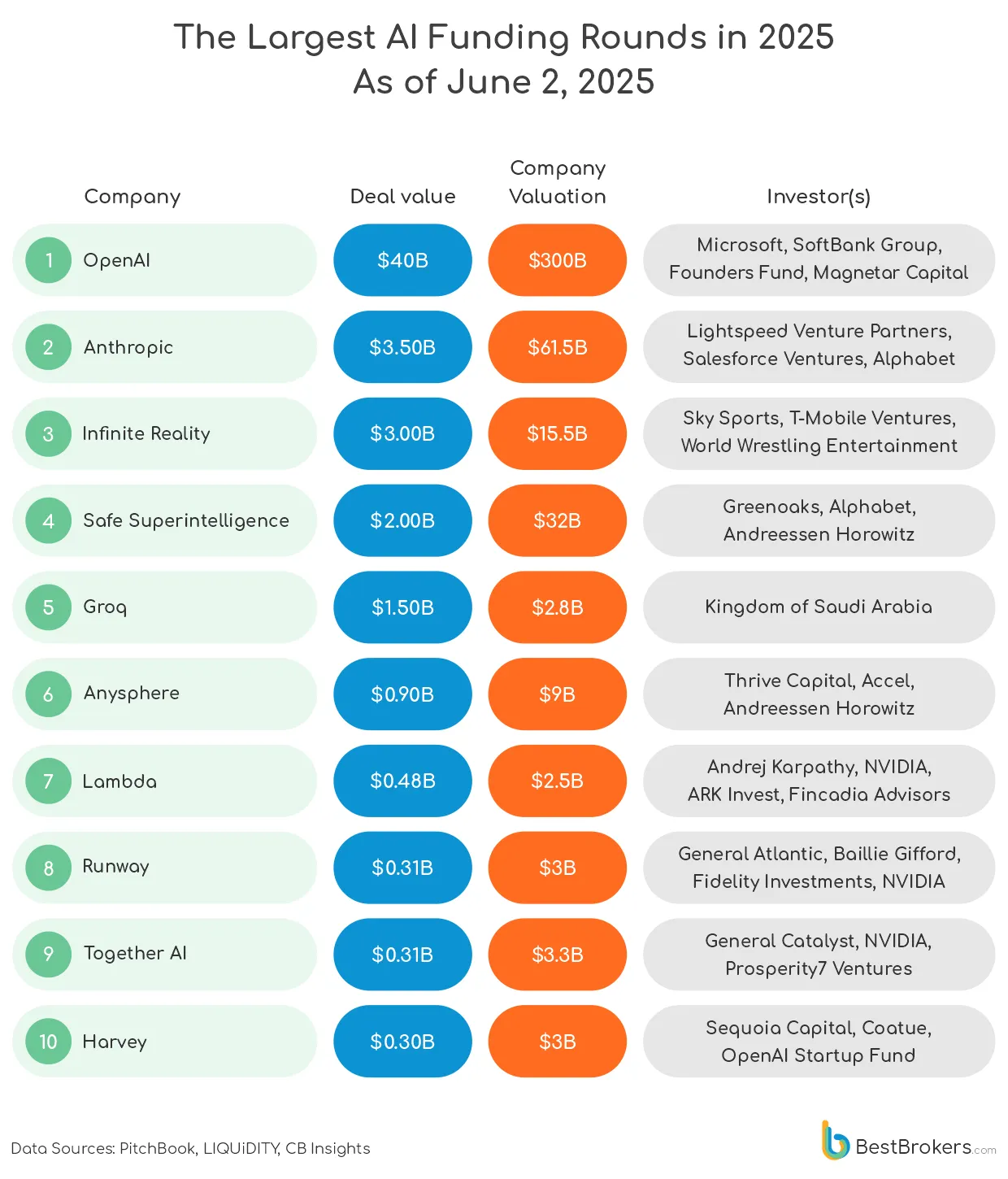In brief
- AI coding startup Cognition is closing a $300M+ funding round, rocketing its “autonomous coder” Devin to a $10 billion valuation.
- Devin wowed Silicon Valley with viral demos, but critics say it still flubs real-world coding and needs human help.
- Investors keep piling in as agentic AI hype grows—despite bugs, flops, and open questions about replacing human engineers.
Cognition’s coding agent Devin has big money behind it—and a long way to go to live up to the hype.
The startup behind the AI coding assistant Devin is negotiating a funding round exceeding $300 million, which would value the company at $10 billion, according to sources familiar with the deal who spoke to Forbes.
Founders Fund and Khosla Ventures are both participating in the round, the sources said.
The deal represents a meteoric rise for a company that barely existed two years ago. Just four months earlier, 8VC led a round valuing Cognition at $4 billion. It started the year at $350 million valuation.
Devin burst onto the scene last year with a viral demo showing an AI that could write, test, and debug code entirely on its own.
Unlike GitHub Copilot or other AI coding tools that suggest snippets or complete lines, Devin’s proposition was that it operates autonomously—cloning repositories, setting up environments, fixing bugs, and deploying applications —without human intervention.
When launched, it scored 13.86% on the SWE-Bench benchmark for resolving GitHub issues unassisted, surpassing the previous best model's 1.96%.
The system features its own shell, code editor, and web browser, enabling it to interact with development tools like a human engineer.
Goldman Sachs recently became the first major bank to pilot Devin earlier this month, with the firm's tech chief, Marco Argenti, telling CNBC: "Initially, we will have hundreds of Devins” with the potential of going “into the thousands, depending on the use cases."
You get billions, you get billions, everyone gets billions!
The funding frenzy is just part of broader investor exuberance around AI. U.S.-based AI startups raised $104.3 billion in the first half of 2025 alone—a lot of money considering that AI startups raised $104.4 billion in 2024 during peak AI hype.
Recent reports indicate that AI funding reached $73.1 billion in Q1 globally, tripling the amount from the same quarter in the previous year and accounting for 57.9% of all venture deals.

However, the road is not easy for Cognition.
Early reviews of Devin described it as bad at its job in real-world scenarios, often requiring human intervention or failing benchmarks entirely.
The Register reported that independent tests showed Devin struggling with tasks that human developers would find routine.
Even today, with AI agents being significantly more powerful, it is not possible to say that an AI agent is capable of matching human behavior or being fully accurate in even basic tasks all the time. Hallucinations remain a significant burden for these bots.
But the promise of agentic AI—systems that can autonomously complete complex multi-step tasks—has captivated Silicon Valley. Microsoft and Alphabet report that AI already generates approximately 30% of the code on some projects, indicating that even with some work required, there is potential in the technology.
Cognition's latest moves suggest aggressive expansion plans. Earlier this month, the company acquired rival Windsurf after OpenAI passed on the deal.
"The new Cognition will work faster than ever," CEO Scott Wu said in a video announcing the acquisition, emphasizing the company’s focus on agentic solutions.
The $10 billion valuation would put Cognition in a rare company among AI startups, approaching the stratospheric levels of OpenAI ($300 billion after its latest round) and Anthropic ($60 billion).
Yet, unlike those companies building foundational models, Cognition is betting everything on a single application: replacing entry-level software engineers.
For now, Cognition continues to hire competitive programmers—its Wikipedia page notes that team members include Gennady Korotkevich and Andrew He, both renowned for their coding competitions.
Whether their skills can translate into a product worth $10 billion remains the billion-dollar question.

